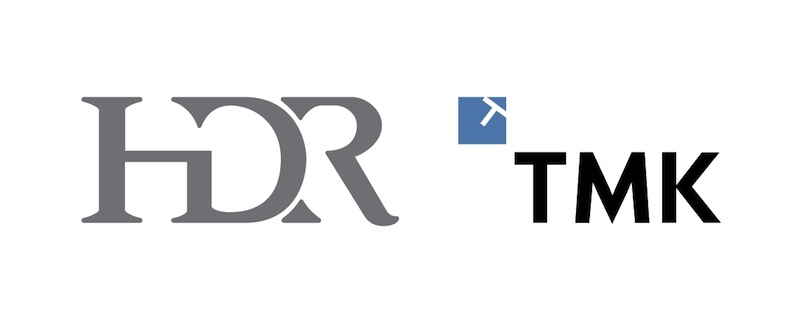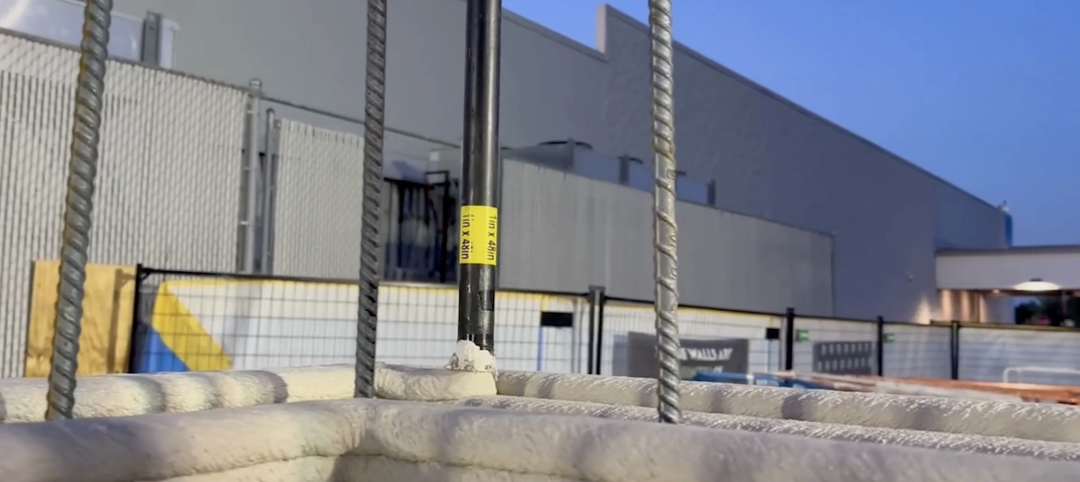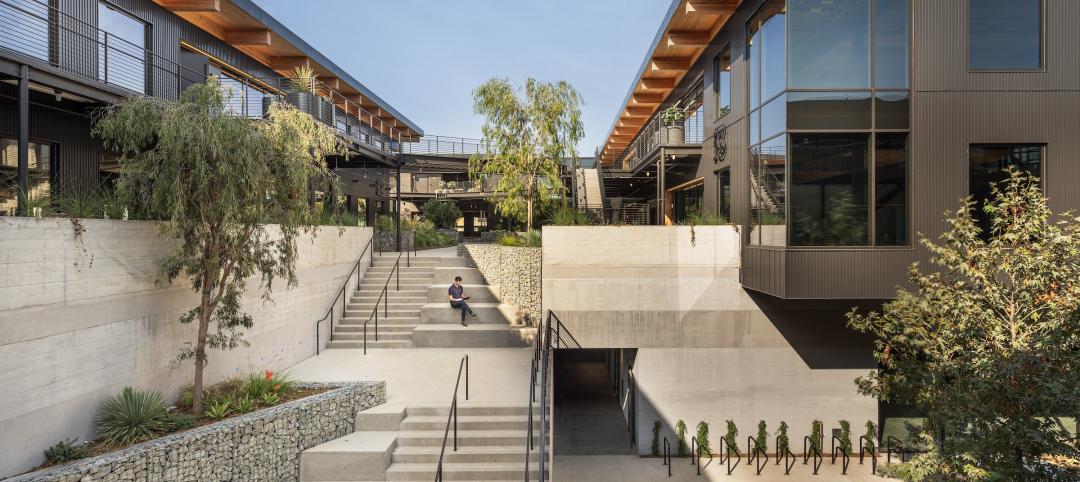TMK Architekten • Ingenieure, one of Germany’s leading healthcare architecture firms, announced today that it is joining forces with HDR Architecture, the world’s No. 1 healthcare and science + technology design firm. The merged company will conduct business as HDR TMK, and will be the hub for the firm’s healthcare and science + technology design programs in Europe.
TMK joins the HDR family with nearly 200 employees located in offices in Berlin, Dortmund, Düsseldorf, Erfurt, Kiel, and Leipzig, Germany. Since its foundation more than 50 years ago, the firm has designed more than 1,500 healthcare projects throughout Europe, ranging from large-scale replacement hospitals to community clinics, surgical centers and outpatient facilities. The firm is well-known as an innovator in designing contemporary buildings for health—buildings that are distinctively designed to focus on people and to aid in the healing process.
“This is an exciting announcement for both HDR and TMK and a key part of our global strategy,” says Doug Wignall, president of HDR Architecture. “As a firm, HDR has made a commitment not only to designing projects all over the world and bringing the best ideas from around the globe to our clients, but to establishing a permanent presence in strategic locations around the globe. We are excited about the opportunity to blend the unique perspective that TMK offers as a German healthcare practice into HDR’s global team of thought leaders from North America, the Middle East and the Pacific Rim.”
Reflecting on the merger of the practices, Guido Messthaler, a Senior Partner with TMK Architekten, notes that, “Both firms are compatible on many levels, specifically in our commitment to our clients and to design excellence.” He continues, “The merger will deepen our healthcare expertise and enable us to reach deeper in the European marketplace. And with access to HDR’s expertise and portfolio, we will also be able to further develop work in the science and technology and higher education markets.”
HDR Architecture employs more than 1,300 professionals in 44 offices worldwide, including offices in the U.S., Canada, China, Europe, the Middle East and Australia. Global acquisitions are a key part of the firm’s growth strategy; with the addition of TMK, over 20% of HDR Architecture’s employees are located outside of the United States.
About HDR Architecture
HDR Architecture is a part of the HDR, Inc. family, a global architecture, engineering and consulting firm with more than 8,000 professionals in 190 locations worldwide. The architecture practice is an industry leader in designing technologically complex buildings and infrastructure; it is ranked as the No. 1 healthcare and science + technology design firm in the “World Architecture 100” ranking. Recent projects in Europe include the new Roslin Institute Building at the University of Edinburgh in Midlothian, Scotland; the Iberian Nanotechnology Laboratory in Braga, Portugal; and multiple projects for the Pirbright Institute in Surrey, United Kingdom. In addition to the newly acquired TMK offices in Germany, HDR has a design studio in London, UK. Visit www.hdrinc.com and www.tmk-architekten.de/
Related Stories
Sustainability | Sep 18, 2024
3 living buildings made by a living practice
Prompting humans to reexamine our relationship to the environment, architecture creates the opportunity for us to physically experience ideas of beauty, performance, and structure through the distinct lens of place.
3D Printing | Sep 17, 2024
Alquist 3D and Walmart complete one of the nation’s largest free-standing, 3D-printed commercial structures
Walmart has completed one of the largest free-standing, 3D-printed commercial structures in the US. Alquist 3D printed the almost 8,000-sf, 20-foot-high addition to a Walmart store in Athens, Tenn. The expansion, which will be used for online pickup and delivery, is the first time Walmart has applied 3D printing technology at this scale.
Retail Centers | Sep 17, 2024
Thinking outside the big box (store)
For over a decade now, the talk of the mall industry has been largely focused on what developers can do to fill the voids left by a steady number of big box store closures. But what do you do when big box tenants stay put?
Government Buildings | Sep 17, 2024
OSHA’s proposed heat standard published in Federal Register
The Occupational Safety and Health Administration (OSHA) has published a proposed standard addressing heat illness in outdoor and indoor settings in the Federal Register. The proposed rule would require employers to evaluate workplaces and implement controls to mitigate exposure to heat through engineering and administrative controls, training, effective communication, and other measures.
Codes and Standards | Sep 17, 2024
New California building code encourages, but does not mandate heat pumps
New California homes are more likely to have all-electric appliances starting in 2026 after the state’s energy regulators approved new state building standards. The new building code will encourage installation of heat pumps without actually banning gas heating.
Mass Timber | Sep 17, 2024
Marina del Rey mixed-use development is L.A.’s largest mass timber project
An office-retail project in Marina del Rey is Los Angeles’ largest mass timber project to date. Encompassing about 3 acres, the 42XX campus consists of three low-rise buildings that seamlessly connect with exterior walkways and stairways. The development provides 151,000 sf of office space and 1,500 sf of retail space.
Education Facilities | Sep 16, 2024
Hot classrooms, playgrounds spur K-12 school districts to go beyond AC for cooling
With hotter weather occurring during the school year, school districts are turning to cooling strategies to complement air conditioning. Reflective playgrounds and roads, cool roofs and window films, shade structures and conversion of asphalt surfaces to a natural state are all being tried in various regions of the country.
Office Buildings | Sep 16, 2024
Maximizing office square footage through ‘agile planning’
Lauren Elliott, RID, NCIDQ, Director of Interior Design, Design Collaborative, shares tips for a designing with a popular and flexible workspace model: Agile planning.
3D Printing | Sep 13, 2024
Swiss researchers develop robotic additive manufacturing method that uses earth-based materials—and not cement
Researchers at ETH Zurich, a university in Switzerland, have developed a new robotic additive manufacturing method to help make the construction industry more sustainable. Unlike concrete 3D printing, the process does not require cement.
Libraries | Sep 12, 2024
How space supports programming changes at university libraries
GBBN Associate Sarah Kusuma Rubritz, AIA, uses the University of Pittsburgh's Hillman Library to showcase how libraries are transforming to support students’ needs.

















